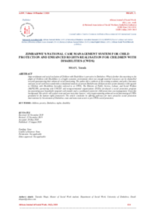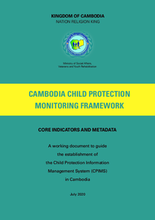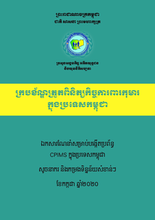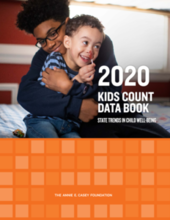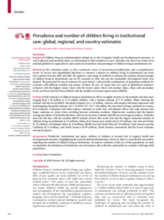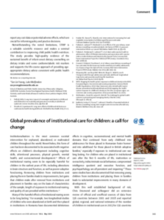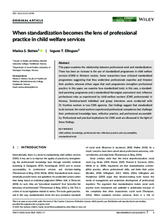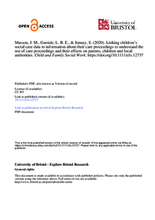Displaying 61 - 70 of 565
The author of this study did a synthesis of the existing academic and policy literature and uses social work lens to undertake a situational analysis of current Zimbabwean child protection system dynamics with regards to Children with Disabilities hereafter referred to as CWDs.
This study sought to better understand the relationship between homelessness and child welfare services (CWS) involvement and examine whether homeless shelter data could combine with CWS data to enhance intervention targeting.
This document, the Cambodia Child Protection Monitoring Framework, contains 50 core indicators considered important in assessing the child protection system in Cambodia.
This document (written in Khmer), the Cambodia Child Protection Monitoring Framework, contains 50 core indicators considered important in assessing the child protection system in Cambodia.
The 31st edition of the Annie E. Casey Foundation's KIDS COUNT® Data Book describes how children across the United States were faring before the coronavirus pandemic began. As always, policymakers, researchers and advocates can continue using this information to help shape their work and build a stronger future for children, families and communities.
The aim of this study was to estimate global-level, regional-level, and country-level numbers and percentages of children living in institutional care.
This comment piece by Charles H Zeanah and Kathryn L Humphreys accompanies a study on the number of children in institutional care around the globe, entitled 'Prevalence and number of children living in institutional care: global, regional, and country estimates,' published in the Lancet in March 2020.
In this paper, the authors examine how standardized tools, in this case, a standardized parenting programme and a standardized Norwegian assessment tool, influence professional roles as experienced by child welfare workers (CWS professionals) in Norway.
The Outcomes for children before and after care proceedings reform study linked administrative records with a research database of care proceedings to examine children's care and service journeys associated with care proceedings in England and Wales.
This paper explores the potential of data linkage to contribute to understanding interactions between care proceedings and care demand, the examination of changes in practice through the analysis of cohorts of children in the care system, or receiving services, and the provision of feedback to those working in the family justice system on the outcomes of care proceedings for children in the UK.

